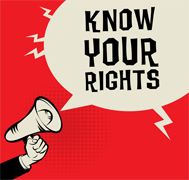
Can a Collection Agency Garnish my Wages?
 No one wants to be unable to pay their bills. For most it is devastating to reach a point where you simply can’t afford your obligations to a creditor, causing you to default and forcing your creditor to assign your account to third party collections.
No one wants to be unable to pay their bills. For most it is devastating to reach a point where you simply can’t afford your obligations to a creditor, causing you to default and forcing your creditor to assign your account to third party collections.
When the collectors start calling they mean business. They have one goal and one goal only, and that is to collect money on behalf of your creditor. Some may even threaten to garnish your wages, leading you to wonder, “can a collection agency garnish my wages?”
Answering this question means taking a closer look at collection agencies, their powers and the regulations governing them.
In Ontario, collection agencies are regulated by the Ontario Government and have to adhere to guidelines in terms of what they can and cannot do when collecting a debt.
Here are some examples of things collection agencies can’t do:
- Contact you on a Sunday, except between 1 p.m. and 5 p.m.
- Contact you on any other day of the week between 9 p.m. and 7 a.m.
- Contact you on a holiday
- Use threatening, profane, intimidating or coercive language
- Use undue, excessive or unreasonable pressure or harass you
- Charge you any fees
If a collection agency crosses the line you can file a complaint against them here: https://www.ontario.ca/home-and-community/collection-agency-your-rights.
Getting back to collection agencies and wage garnishments: in order for your creditors to be able to garnish your wages in Ontario, they must first sue you in small claims court, obtain a judgement against you and then gain permission from the court to garnish your wages.
In small claims court your creditor can represent itself or hire a third party agent as its representative. A paid agent must be a paralegal licensed by the LSUC.
The only way that a collection agency can garnish your wages on behalf of a client is if they have a division that includes licensed paralegals who may administer small claims court documents and filings and if:
- The company has been engaged to represent the creditor to sue you in small claims court.
- The file was assigned after the creditor already had a judgement and it simply hasn’t been enforced.
- They are representing an arm of the government that doesn’t require a court order to garnish – but in this instance it is more likely that the government would directly garnish your wages.
If a collection agency threatens to garnish your wages:
- Ask them to put their threat in writing.
- Ask for written evidence that they have been engaged by the client to take legal action or enforce a judgement against you.
- Contact the small claims court to confirm if there has been a judgement filed against you.
While you have some leverage as far as asking for transparency and standing up to the collection agencies, eventually you are going to have to look at ways to address the root cause of your challenges -which is the debt that you can’t pay. The cycle will only continue because, after a certain amount of time, the creditor may assign your account to another collection agency and then another. Some collection agencies do have legal departments and paralegals on staff, so while most won’t garnish your wages on behalf of a creditor and may merely threaten, others do have the power to do so.
Know your rights about what collection agencies can and cannot do – but don’t ever ignore a debt that has gone to collections. Call DebtCare Canada today – we will help you get the relief you need: 1-888-890-0888.


